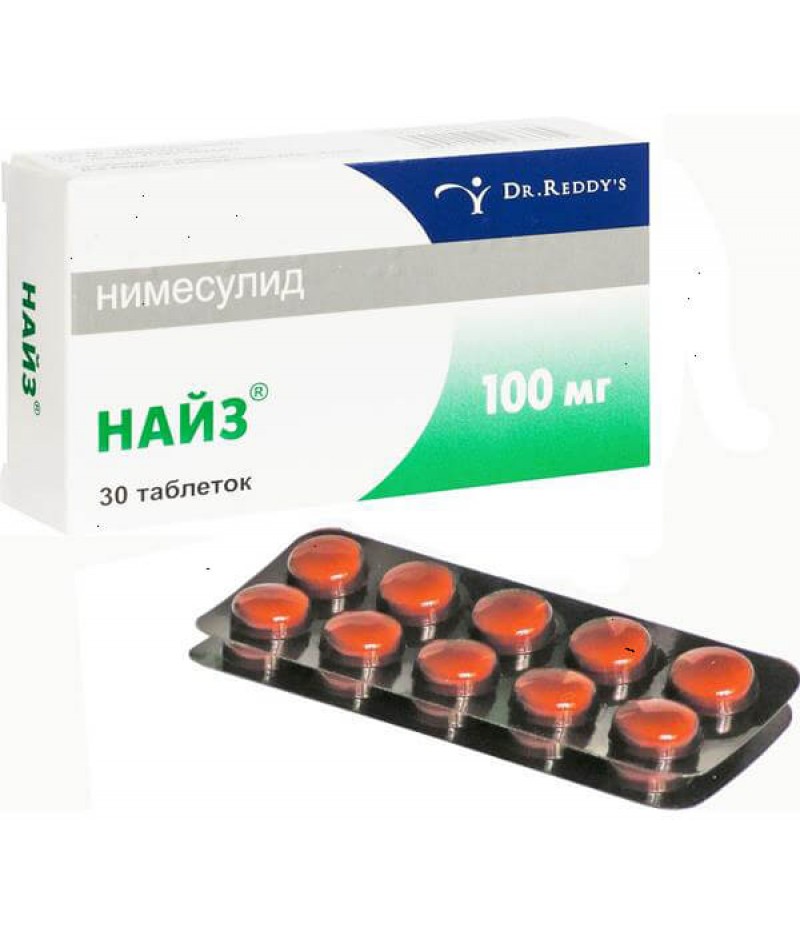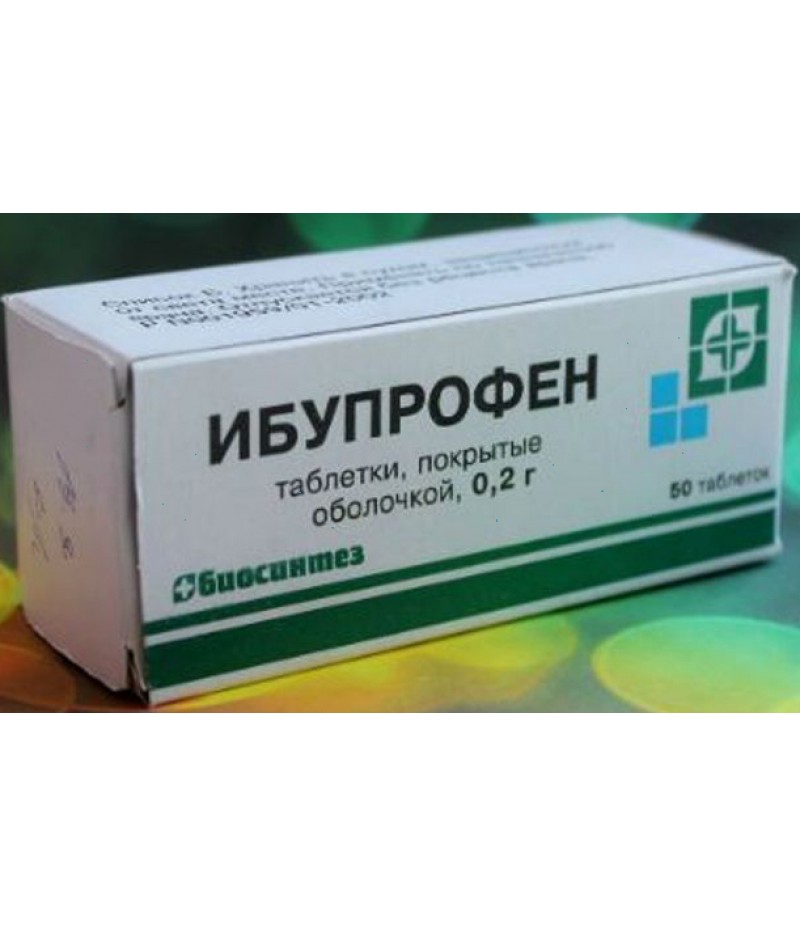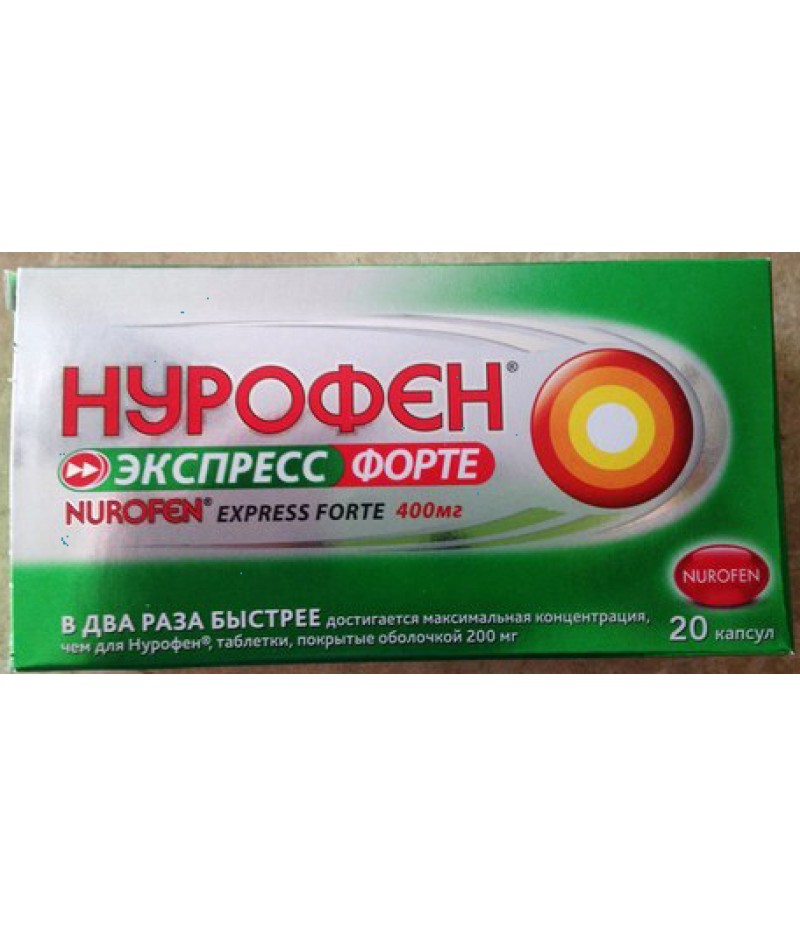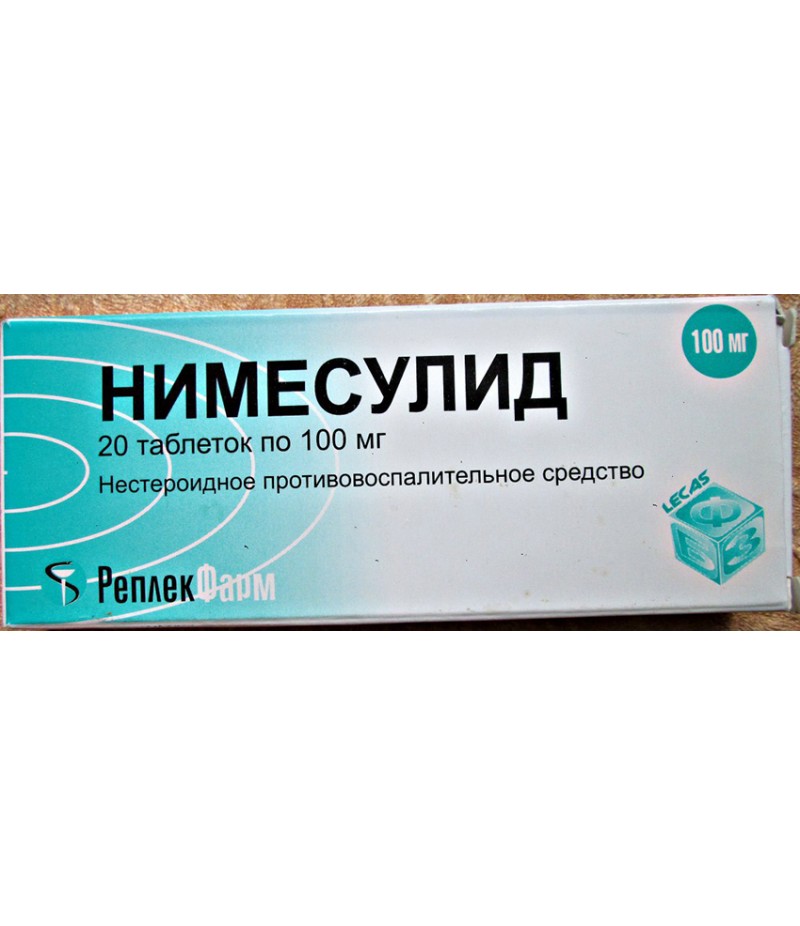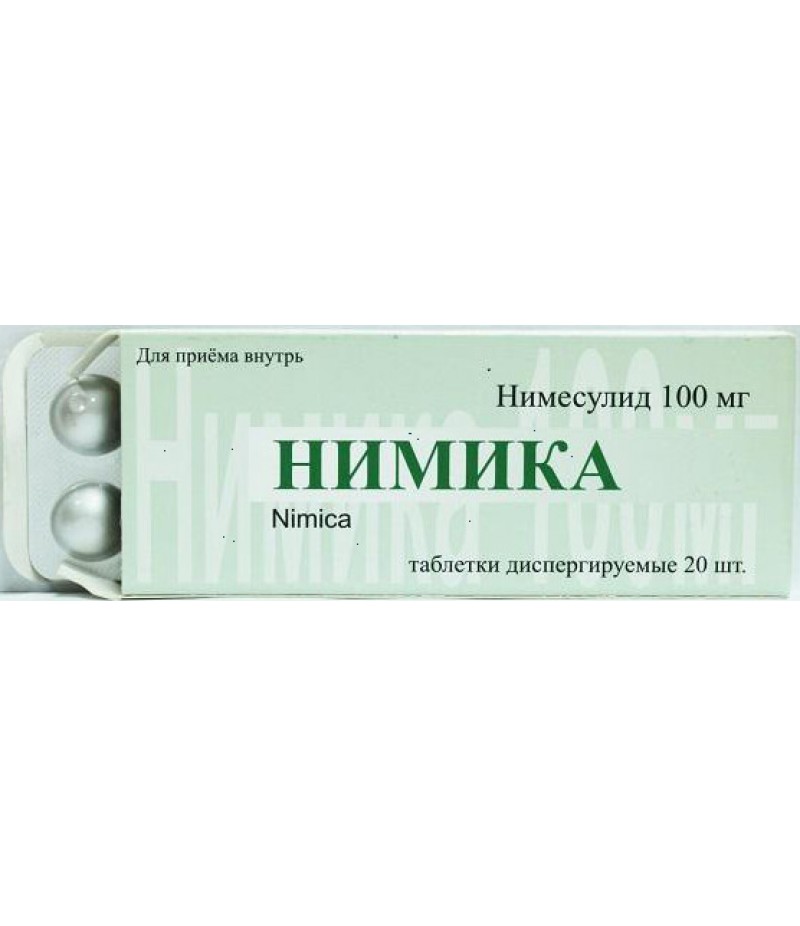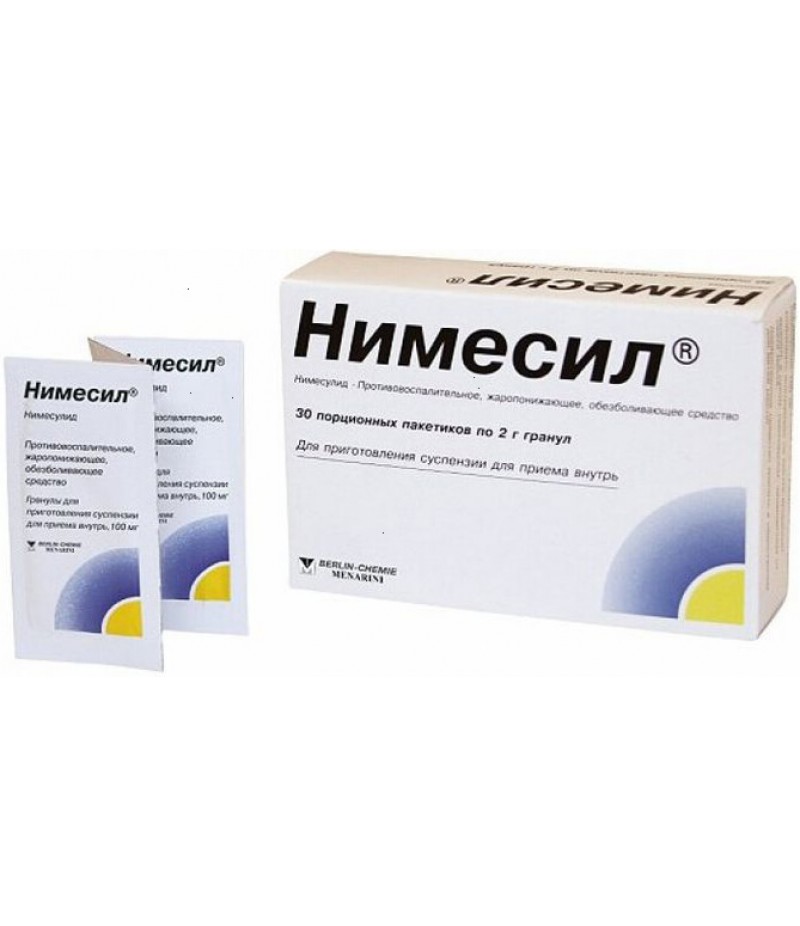Nise tabs 100mg #30
- $15.14
- 3 or more $14.99
- 5 or more $14.85
- Availability:In Stock
Instruction for NiseYou can buy Nise tablets on this pageRelease form and drug compositionThe Nise drug is available in the form of dispersible tablets in blisters of 10 pieces in a cardboard box, whi
Instruction for Nise
You can buy Nise tablets on this page
Release form and drug composition
The Nise drug is available in the form of dispersible tablets in blisters of 10 pieces in a cardboard box, which also contains detailed instructions with a description. Each tablet of the drug contains 50 mg of the active active ingredient - Nimesulide, as well as a number of auxiliary components.
Pharmacological properties of the drug
The drug Nise is a non-steroidal anti-inflammatory drug that inhibits the synthesis of prostaglandins - mediators of inflammatory processes and edema in the body. When taking the pill inside, there is an analgesic, antipyretic and decongestant effect on the body.
The drug inhibits the process of gluing platelets with each other, slightly dilutes the thick blood, which serves as a preventive measure for the development of thrombosis.
When taking the medicine inside, pain in the joints disappears, stiffness of movements and swelling at the site of inflammation decrease.
Indications for use
Nise tablets are prescribed to patients to treat the following conditions:
Gout;
Rheumatoid arthritis;
Ankylosing spondylitis;
Osteochondrosis with radicular syndrome;
Sciatica;
Lumbago;
Inflammation of the nerve roots of the spinal column;
Osteoarthrosis;
Inflammation of the joints of various origins;
Pain in the joints, a feeling of stiffness in the morning;
Muscle pain of various origins;
Inflammatory processes in ligaments, tendons, articular bag;
Relieving pain of post-traumatic origin (bruises, sprains);
Toothache, menstrual pain, abdominal pain, headache;
Fever.
Contraindications
Before starting drug therapy, you should carefully read the attached instructions. Nise tablets are contraindicated in patients with the following conditions:
Chronic erosive processes in the digestive tract during an exacerbation;
Gastrointestinal bleeding or suspicion of it;
Severe impaired liver and kidney function;
Acute hepatic or renal failure;
“Aspirin triad”;
Individual intolerance to the medicinal composition;
Pregnancy and the period of breastfeeding;
Children under 12 years of age for this dosage form;
Atopic dermatitis or bronchial asthma;
With caution, Nise is prescribed to patients with arterial hypertension and type 2 diabetes.
Dosage regimen and method of application
According to the instructions, Nise is recommended to be taken after meals to reduce its irritating effect on the mucous membranes of the digestive tract. The tablet is dissolved in a small amount of water (1-2 teaspoons) until a homogeneous suspension is obtained, taken orally and washed down with water or any other liquid.
For patients over 12 years of age, a single dose of the drug is 1-2 tablets of 50 mg. The medicine should be taken 2 times a day or as needed, however, the maximum daily dose should not exceed 400 mg of the drug.
For children under 12 years of age, Nise is prescribed in the form of a suspension under the supervision of a physician.
The duration of the course of treatment of the drug is determined by the doctor depending on the indications and individual characteristics of the body, but it is advisable not to take the medicine for more than 7-10 days, since in this case the risk of side effects increases significantly.
Use of the drug among pregnant women and nursing mothers
Due to the lack of clinical experience, Nise is not recommended for pregnant women. If the patient took the drug and became pregnant, discontinue therapy as soon as possible and consult a gynecologist. Such a pregnancy should be under the close supervision of doctors, then the newborn will then be examined for pathologies from the blood forming organs.
It is not recommended to use this drug during breastfeeding, since the active substance can be excreted in breast milk. If treatment is necessary, a woman should stop breast-feeding.
Adverse reactions
During treatment with the drug in patients, the following negative reactions may occur:
From the digestive system - epigastric pain, nausea, lack of appetite, vomiting, pain in the right hypochondrium, diarrhea, heartburn, flatulence, acid belching, exacerbation of chronic diseases, development of Crohn's disease, enlarged liver and liver transaminases;
From the nervous system - headaches and dizziness;
From the hematopoietic system - thrombocytopenia, a decrease in the number of white blood cells in the blood, anemia, agranulocytosis;
Allergic reactions - a rash on the skin, an increase in attacks of bronchial asthma, bronchospasm, urticaria, in rare cases with increased sensitivity, anaphylactic shock may develop.
If such symptoms appear, the patient should consult a doctor.
Overdose
With prolonged use of Nise tablets in large dosages, the patient quickly develops signs of an overdose, which manifest themselves as an increase in the above adverse reactions.
In case of accidental ingestion of a large number of tablets, patients may have gastrointestinal bleeding, increased blood pressure, inhibition of kidney and liver function, impaired respiratory function. With the development of signs of overdose, the patient should rinse the stomach, inject activated charcoal or one of the enterosorbents inside. If necessary, symptomatic treatment is performed. There is no antidote; hemodialysis in case of an overdose is ineffective.
Interaction with other medicines
The drug Nise should not be used simultaneously with Digoxin, Phenytoin or lithium preparations, since under the influence of each other the therapeutic effect of the drugs is reduced.
With the simultaneous use of this drug with hypoglycemic agents, patients should constantly monitor their blood sugar levels, you may need to adjust the dose of the latter.
When using a drug with antihypertensive drugs, the patient's blood pressure can significantly decrease, therefore this drug interaction is undesirable.
The drug Nise should not be used simultaneously with anticoagulants, as this increases the risk of internal bleeding. The same applies to drugs from the group of non-steroidal anti-inflammatory drugs - it is not recommended to use them together with Nise.
Special instructions
For patients with a history of impaired renal or hepatic function, the daily dose of the drug is determined by the doctor individually, and the therapy is carried out under the supervision of a specialist.
Patients with a history of allergic reactions to aspirin should consult a doctor before starting therapy with Nise.
Since patients may sometimes experience dizziness during treatment with the drug, during this period it is recommended to refrain from driving a car and machinery, work with which requires an increased concentration of attention.
Storage conditions
Keep the tablets away from children in a cool place, avoiding contact with water and direct sunlight. The shelf life of the drug is indicated on the package, at the end of the drug can not be taken orally.
Terms of sell
You can buy Nise without a prescription.

